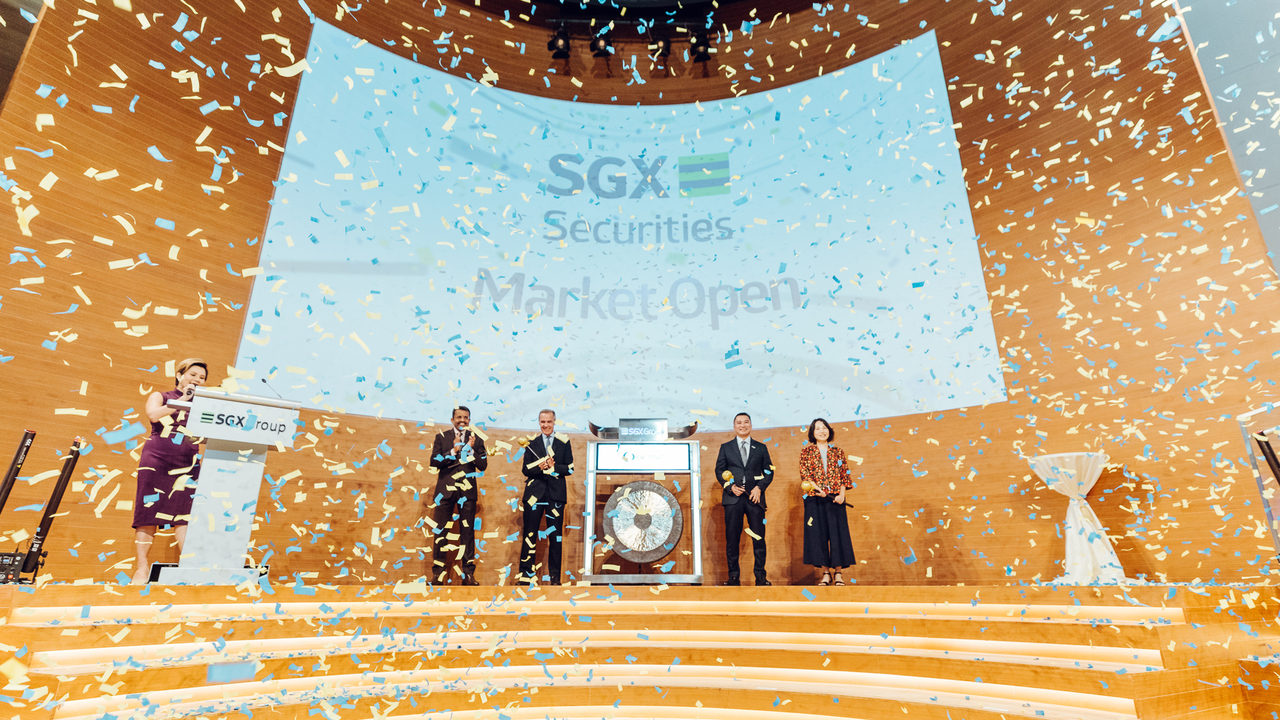Global finance coalition sets up Singapore office to spur regional climate action
Sign up now: Get insights on Asia's fast-moving developments

The Glasgow Financial Alliance for Net Zero is working to accelerate the world's transition to net-zero greenhouse gas emissions by 2050.
PHOTO: SGX GROUP
SINGAPORE - A coalition of some of the world's leading financial institutions launched an Asia-Pacific network and office in Singapore on Wednesday (June 8) with the aim of speeding up regional investment in clean energy, transport and industry as part of global efforts to fight climate change.
The Glasgow Financial Alliance for Net Zero (GFANZ) is working to accelerate the world's transition to net-zero greenhouse gas emissions by 2050. And to do that, its members are tasked with not only shifting their own business practices towards net-zero emissions but also ensuring their investments are, too.
This is especially critical in the Asia-Pacific, given its rapid economic growth, large populations and huge appetite for energy. What the region does in terms of energy investment will determine whether the world can limit global warming to 1.5 deg C above pre-industrial levels, the United Nations says.
GFANZ, which was launched last year, has more than 450 member firms including banks, insurers, asset owners, asset managers and financial service providers spanning 45 countries and representing around 40 per cent of global private financial assets.
DBS and Singapore Exchange (SGX) Group are signatories.
Wednesday's launch was held at SGX.
As part of opening the regional office, GFANZ also announced the creation of its advisory board, which will be headed by Mr Ravi Menon, managing director of the Monetary Authority of Singapore (MAS).
The board will help guide the GFANZ regional network as it engages banks, pension funds, asset managers and other investors as well as policymakers around the region.
"Asia is key to the world's transition to net zero. Finance can be a powerful enabler to help Asia achieve an effective and inclusive transition to net zero," Mr Menon said in a statement.
"Catalysing green finance on the scale that is necessary to address the climate crisis will require active collaboration between the financial industry and financial regulators," he said.
Other members of the advisory board include Mr Woochong Um, managing director general, Asian Development Bank; Mr Liqun Jin, president and chair of board of directors of the Asian Infrastructure Investment Bank; and Mr Boon Chye Loh, chief executive officer, SGX Group.
GFANZ's office is supported by the SGX Group, Temasek and MAS, and led by Ms Yuki Yasui, who was the Apac lead for the UN Environment Programme for Financial Institutions.
To avert climate catastrophe, all regions will need to work together to decarbonise their economies, and the global financial system will need to help finance the transition to net zero, GFANZ said, adding that it plans to set up chapters with offices in countries across the Asia-Pacific.
The region needs US$13.6 trillion (S$18.7 trillion) in investment this decade to speed up the global net-zero transition and avoid the worst impacts of climate change, according to the UN-backed Race to Zero campaign.
The Association of South-east Asian Nations (Asean) in particular has huge financing needs to ensure green and clean growth, shifting from polluting energy and transport to renewable energy, electric vehicles, energy-efficient buildings and homes and less destructive agriculture.
A report released on Tuesday on the sidelines of the Ecosperity conference in Singapore said Asean needs US$3 trillion in investment by 2030 to be aligned to the 1.5 deg C pathway under the UN's Paris climate agreement. But less than 1 per cent has been invested to date, the report by Bain & Company, Microsoft and Temasek said.
"The world cannot address climate change without finance. Similarly, the global financial system cannot do its fair share without the leadership of the Asia-Pacific financial institutions," said Mr Mark Carney, GFANZ co-chair and UN special envoy for climate action and finance.
For all its ambition, though, GFANZ has faced criticism. Environmental groups and others point out that some of the alliance's members still fund fossil fuel expansion, while some of its asset manager partners are failing to align their portfolios to net-zero emissions.
Others say it will take time to get the finance sector fully on board and to green investment their portfolios in line with cutting emissions to net zero by 2050.


